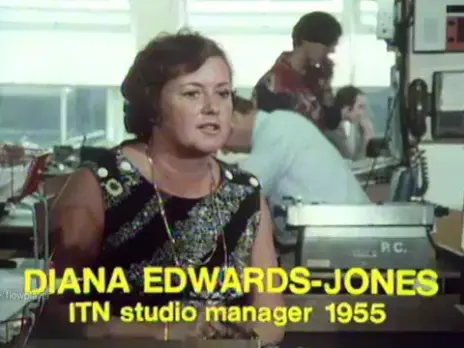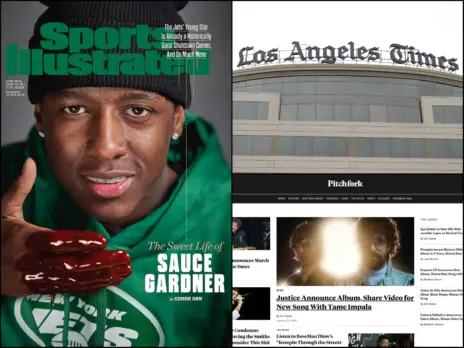A BBC journalist suspects that Police Scotland snooped on him without judicial approval to try and find his sources while he was investigating the force.
Eamon O'Connor has claimed that a "very dependable source" believes he was targeted by the force's Counter Corruption Unit.
The revelation comes after the Sunday Herald quoted an inside source as saying that Police Scotland was one of two forces to have accessed phone records, under the Regulation of Investigatory Powers Act (RIPA), to find journalistic sources without judicial approval since the law was changed in March to prevent this.
The Interception of Communications Commissioner's Office (IOCCO), which is the RIPA watchdog, has said it is investigating but is not prepared at this stage to name the forces involved.
Police Scotland has refused to confirm or deny whether it is one of the forces under investigation.
O'Connor told the BBC's Scotland 2015 that he does not know for sure whether police have spied on him. But he added: "I'm concerned because recently I was contacted by a very dependable source who knows Police Scotland very well and he warned me that he had been told explicitly that the Counter Corruption Unit, which is designed to catch police doing things that they shouldn't do, has been monitoring journalists' communications with police sources for some time.
"And he believed that I had been one of those people targeted. And more significantly he believed that I had been targeted without judicial approval. In other words a judge had not approved my communications being looked at by Police Scotland."
Asked why he would have been targeted, O'Connor said: "Well, that's a very good question. It's one that I don't have an obvious answer to except to say that for the last year and more than that I have been looking in depth at what went wrong in the investigation into the murder of Emma Caldwell, a young woman who was murdered ten years ago and whose killer or killers have never been put on trial.
"Police Scotland mounted a massive operation to catch Emma's killers. They spent £4m of the taxpayers' money and ended up charging four Turkish men with her murder. But the man was released and no trial took place.
"I made a Radio 4 documentary for File on Four earlier this year which highlighted a number of very serious problems with the way in which the original investigation was run. I can only assume that that has caused some concern inside Police Scotland.
"I know that it has because I've had contact from senior officers inside Police Scotland. But I don't know if anyone inside Police Scotland has been so concerned that they have decided to monitor my communications to see who I have been speaking to."
Because O'Connor does not have details of the case, it is not clear whether he would have been targeted before or after the RIPA law change in March. His documentary was aired in May this year.
O'Connor told Scotland 2015 that he has asked Police Scotland if he has been targeted but the force has refused to confirm or deny.
He said: "I think here what needs to be pointed out, and the public need to be aware of, is this is normally a power that is used when you're investigating serious crime: terrorist crime, organised criminal gangs and so on.
"I'm a journalist, I'm not a terrorist, I'm not an organised criminal. And therefore I don't think it's appropriate for my communications to be monitored if that indeed is what's happened."
O'Connor added: "The bigger principle is that journalists shouldn't be monitored in this way unless they are in some way involved in activities that have to do with very serious crime.
"My activities were legitimate journalistic inquiries to find out why the police had screwed up the inquiry into Emma Caldwell's murder so badly."
Asked on the programme how serious the situation was, O'Connor said: "It's really serious. I think that – you know I don't want to appear silly about this, I'm not frightened for my personal safety or anything of that kind. But I do feel that this is likely to intimidate and impede whistleblowers and people who want to come forward to tell the truth about something they believe shouldn't have happened.
"And I need those people to be able to do that if I'm going to be able to do my job, which is to help inform the public when some thing's gone wrong.
"If I'm intimidated or impeded from doing that, and my sources are intimidated and impeded from doing that because they fear they are being monitored, then proper journalism can't be done."
He said that if it emerges Police Scotland have secretly obtained his communications data, he will "demand an explanation: I'm going to ask how long that they have been looking at my communications for, I'm going to demand what they've done with that information, and I'm going to ask that they stop any such activity".
Police Scotland said it would not comment on O'Connor's allegations. The force referred Press Gazette to a statement released earlier this week following the Sunday Herald claims.
This said: “IOCCO has clearly set out its rationale for not identifying organisations in its report, and therefore it would be inappropriate to comment further.”
Email pged@pressgazette.co.uk to point out mistakes, provide story tips or send in a letter for publication on our "Letters Page" blog







